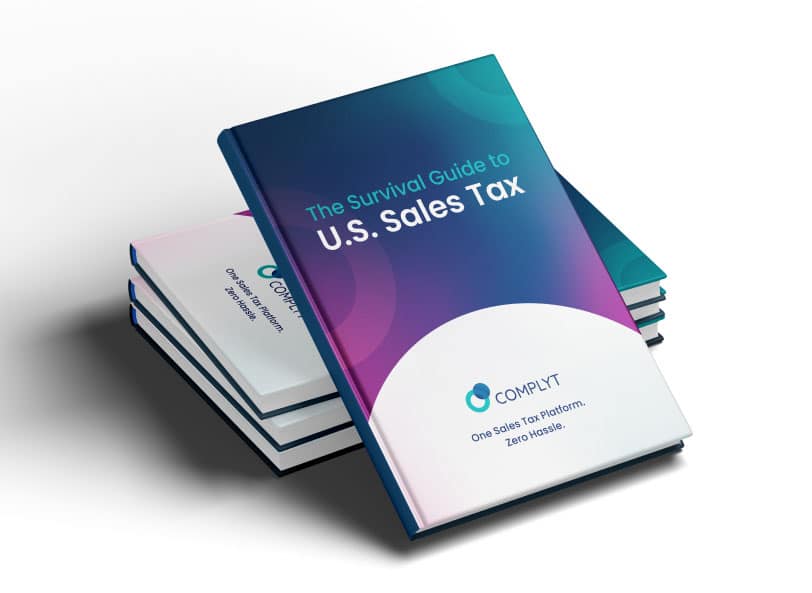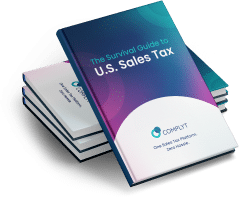What is the sales tax rate in Colorado?
The state sales tax rate in Colorado is 2.9%. But that’s not the whole picture. Colorado operates a “home-rule” system, meaning that municipalities can set their own sales tax rates. This can make the combined sales tax rate in some Colorado locations as high as 11.2%.
When should your business collect Sales Tax in Colorado?
If your business has a sales tax nexus in Colorado, it is obligated to collect and remit sales tax. Nexus can be established in various ways, including through a physical presence or economic activity in the state. So the requirement to collect sales tax applies regardless of whether the sale is made at a retailer’s location in Colorado or delivered to the customer at a location in Colorado.
Colorado Physical Sales Tax Nexus
A physical sales tax nexus in Colorado is formed when a business maintains a physical presence in the state.
Sales Tax Physical Nexus checklist for Colorado
The following conditions might establish a physical nexus in Colorado:
- Operating an office or warehouse
- Employing residents in the state
- Storing inventory in the state
- Regularly conducting meetings or business activities
Colorado Economic Nexus: Revenue, Thresholds and Transactions
In Colorado, an economic nexus is established if your business has more than $100,000 in gross sales or services in the state over the past calendar year.
Which services are taxable in Colorado?
Not all services are taxable in Colorado. However, even non-taxable services may be subject to sales tax if they are provided as part of a transaction involving the sale of tangible personal property.
There are also a few exemptions, with taxable services that include:
- Furnishing rooms or accommodations
- Telecommunication services
- Information and software services
Colorado Sales Tax on Products: How to Calculate What Your Business Should be Charging
To determine the sales tax to charge, multiply the total price of the taxable item by the combined sales tax rate of the location where the sale is made.
How Much is the Colorado Clothing Tax?
The sale of clothing is subject to the state sales tax rate of 2.9% and local surtaxes which can bring the total clothing sales tax up to 11.2% in Colorado.
Colorado Online Sales Tax: Are SaaS and Digital Services Taxable?
SaaS and digital services are generally not taxable in Colorado, but it’s important to check the specific circumstances and consult the Colorado Department of Revenue’s Sales Tax Guide for more information.
SaaS Sales Tax Colorado: Does my Business Need to Charge Sales Tax for SaaS in Colorado?
Colorado as a state does not charge Colorado SaaS Sales Tax. However, it’s important to note that some home-rule cities in Colorado, such as Denver, may subject SaaS sales to their local retail sales tax rate under certain criteria.
How can a business get a sales tax permit in Colorado?
Businesses can apply for a Colorado sales tax license online through the Colorado Department of Revenue’s Colorado Taxpayer Access Point (COFTAP).
Collecting Sales Tax in Colorado as a Business
Businesses in Colorado should collect sales tax based on the tax rate of their customer’s location (destination-based sales tax).
Colorado Sales Tax Return Due Dates Explained
Sales tax returns in Colorado are typically due on the 20th of the month following the reporting period. The due dates for quarterly filing are as follows:
Q1 (Jan – Mar): April 20
Q2 (Apr – Jun): July 20
Q3 (Jul – Sep): October 20
Q4 (Oct – Dec): January 20
Corporations must file their sales tax returns by the 15th day of the fourth month following the close of the taxable year. Typically, this means April 15 for a calendar year filer.
Denver has its own tax regulations, and returns and payments are due on or before January 31. If the due date falls on a holiday or weekend, the return will be considered due on the next business day.
What is the required frequency for sales tax returns in Colorado?
The frequency for filing sales tax returns in Colorado is determined by the amount of sales tax your business collects.


